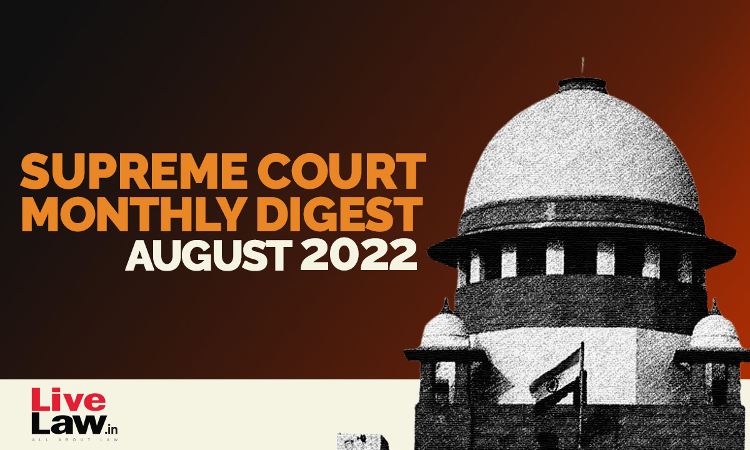Supreme Court Monthly Digest With Nominal And Subject/Statute Wise Index
LIVELAW NEWS NETWORK
4 Sept 2022 9:24 AM IST

Next Story
4 Sept 2022 9:24 AM IST
Administrative Tribunals Act, 1985; Section 17 - Power of CAT to punish for contempt - Central Administrative Tribunal Rules 13 & 15 - CAT cannot punish for contempt committed in the face of it without trial when the alleged contemnor denies charges - Procedure under Section 14(1)(c) of the Contempt of Courts Act to be followed- CAT has no power of the Supreme Court under Articles...
